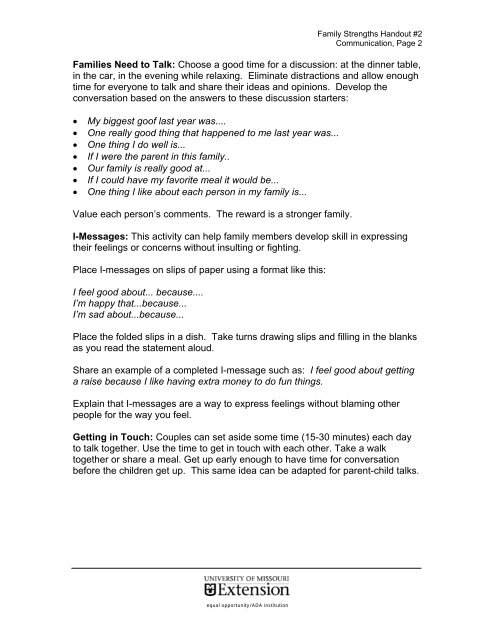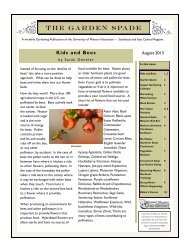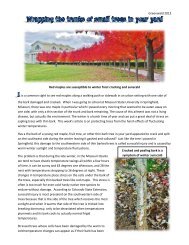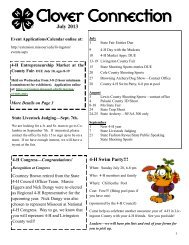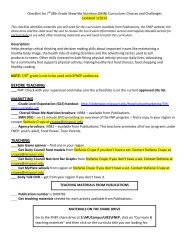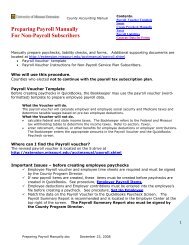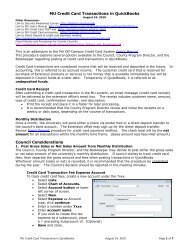Building Strong Families - University of Missouri Extension
Building Strong Families - University of Missouri Extension
Building Strong Families - University of Missouri Extension
Create successful ePaper yourself
Turn your PDF publications into a flip-book with our unique Google optimized e-Paper software.
equal opportunity/ADA institution<br />
Family Strengths Handout #2<br />
Communication, Page 2<br />
<strong>Families</strong> Need to Talk: Choose a good time for a discussion: at the dinner table,<br />
in the car, in the evening while relaxing. Eliminate distractions and allow enough<br />
time for everyone to talk and share their ideas and opinions. Develop the<br />
conversation based on the answers to these discussion starters:<br />
• My biggest go<strong>of</strong> last year was....<br />
• One really good thing that happened to me last year was...<br />
• One thing I do well is...<br />
• If I were the parent in this family..<br />
• Our family is really good at...<br />
• If I could have my favorite meal it would be...<br />
• One thing I like about each person in my family is...<br />
Value each person’s comments. The reward is a stronger family.<br />
I-Messages: This activity can help family members develop skill in expressing<br />
their feelings or concerns without insulting or fighting.<br />
Place I-messages on slips <strong>of</strong> paper using a format like this:<br />
I feel good about... because....<br />
I’m happy that...because...<br />
I’m sad about...because...<br />
Place the folded slips in a dish. Take turns drawing slips and filling in the blanks<br />
as you read the statement aloud.<br />
Share an example <strong>of</strong> a completed I-message such as: I feel good about getting<br />
a raise because I like having extra money to do fun things.<br />
Explain that I-messages are a way to express feelings without blaming other<br />
people for the way you feel.<br />
Getting in Touch: Couples can set aside some time (15-30 minutes) each day<br />
to talk together. Use the time to get in touch with each other. Take a walk<br />
together or share a meal. Get up early enough to have time for conversation<br />
before the children get up. This same idea can be adapted for parent-child talks.


